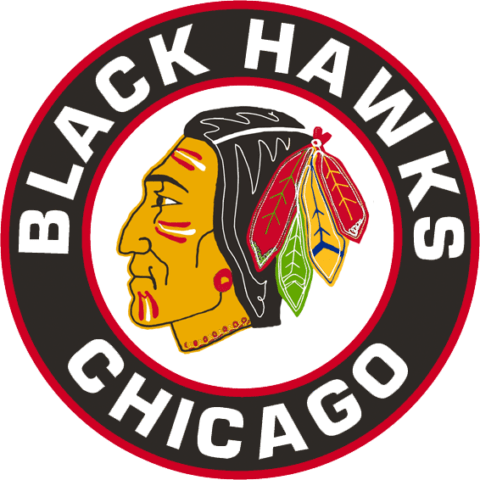Currently, many professional and amateur sports franchises that are named after North American indigenous groups are under growing pressure to change their brand association away from what is now considered racist symbolism.
On July 3, 2020, ownership of the National Football League’s (NFL) Washington Redskins franchise acquiesced to pressure from major sponsors like FedEx, Nike and Pepsi. They demanded that the Redskins change their name and iconography. FedEx owns the naming rights to the stadium that they play in. Nike, the biggest sports apparel company in the world, removed the Redskins brand from its website but left the remaining 31 NFL brands.
Money Talks
On July 2, FedEx informed the Redskins office that they will have their brand removed from the stadium for which they originally agreed to a $205-million naming rights contract in 1999. The deal expires in 2025. In 2012, Nike agreed to outfit the entirety of the NFL to the tune of $1 billion.
Related: Best Blackhawks’ Draft Picks – 2010 to Present
All told, three separate firms sent letters that were signed by 87 investment firms and shareholders worth over $620 billion asking FedEx, Nike and Pepsi to end their relationships with the team unless it agrees to change its name, according to the Washington Post.
“There is no viable path, locally or federally, for the Washington football team to return to Washington, D.C., without first changing the team name,” D.C. Deputy Mayor John Falcicchio told the Post. (from ‘Unless Daniel Snyder changes Redskins’ name, RFK site is off the table, officials say,’ Washington Post, 07/01/2020)
The team owners were left with no choice, but to conduct a re-brand. Of the indigenous-oriented team brands that are considered racist, the Redskins appear to be the clear leader. The many other teams that associate with indigenous culture carry varying degrees of systemic racist iconography, down to none at all.
Should the Chicago Blackhawks Change their Name?
In hockey, there are the Chicago Blackhawks (formerly Black Hawks). There are also the Western Hockey League’s (WHL) Portland Winterhawks, Spokane Chiefs and Seattle Thunderbirds. There are many other teams at various levels branded after indigenous culture.
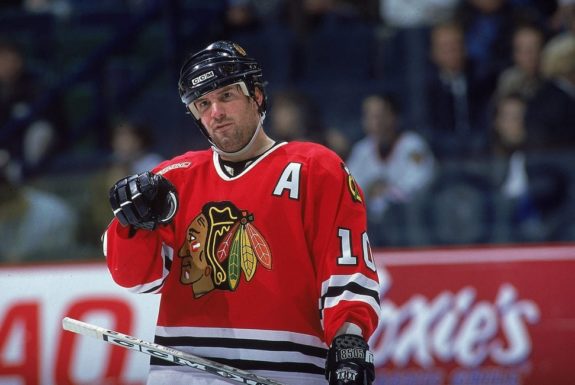
Perhaps the question should be: was the creation of the Black Hawks’ brand by original owner Huntington Hardwick and shortly thereafter Frederic McLaughlin (1926-1944) intended to be racist? The answer may not be what you think it is.
Does a Tough Brand Identity Produce Results?
Some people will bristle at the notion that an indigenous-associated team brand is not racist, and that the intention may not have been racist at the time of naming the team. Indigenous brands are typically associated with a symbol of strength, honour and toughness. The NFL and the NHL — two very physical sports — require most players to withstand heavy hitting. Team nicknames often suggest power, pride and brawn. For example, the Chicago Bears and Chicago Bulls in the windy city, as well as brands like the Broncos, Raiders, Texans, Rams and Cowboys in the NFL, and Bruins, Panthers, Wild, Predators, and Sharks in the NHL.
Related: The NHL’s Evolution of Integration
The short answer is no. Absolutely, there are many team brands that are successful without the use of brawn in their nickname, for example, the all-time most successful NHL team in terms of Stanley Cup wins is the Canadiens. The Oilers—really, what is an Oiler anyway?—won five Cups in seven years during the 1980s. The rough and tumble Ducks of Anaheim quacked their way to a Cup win in 2007.
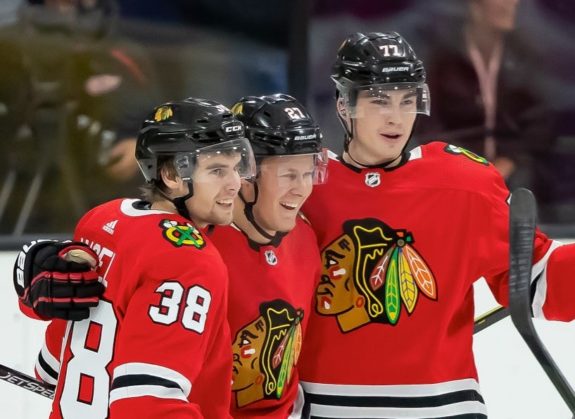
The Penguins, Flyers, Lightning, Blues, Capitals, Kings, Red Wings and Stars have won Cups over the past 22 years. None of their brands put the scare into the Boston-based team named the Bruins, which is incidentally the only tough-sounding team to win a Stanley Cup in NHL history. Unless the Devils’ name scares the bejesus out of you.
However, that does not mean honouring a group of people in a brand should disappear from practice.
Black Hawks, a Historical Context
During the war of 1812, Illinois-area natives helped what was America battle the British, with the intention to keep colonialism at bay. They were led by War Chief Black Hawk, a Sauk leader.
The Chicago Black Hawks were named in 1926 to honour those brave soldiers—especially Black Hawk. This is a very different thing than the so-called mascot-like treatment of certain indigenous people as per the Redskins iconography.
On July 7, the Blackhawks issued a press release to defend their team’s brand. The ownership stated, “The Chicago Blackhawks name and logo symbolizes an important and historic person, Black Hawk of Illinois’ Sac & Fox Nation, whose leadership and life has inspired generations of Native Americans, veterans and the public.” The Blackhawks further stated they would “expand awareness” of Black Hawk and all Indigenous American contributions.
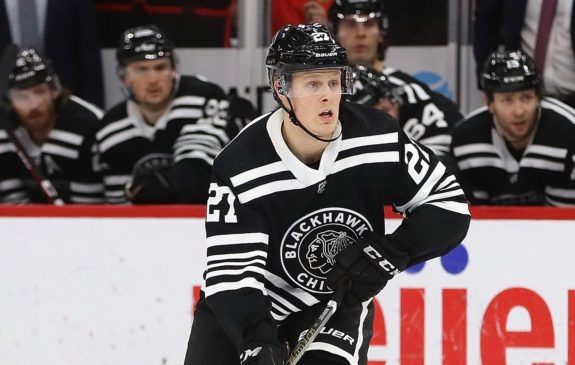
Black Hawk (1767-1838) was a heroic war chief of the Sauk Native American tribe. Twenty years later, he again fought for the British, losing this time. In 1833, while in captivity, he told his life story to Antoine LeClaire a government translator who wrote his autobiography that went on to be a bestseller. The book was titled, Black Hawk: Embracing the Traditions of his Nation.
The city of Chicago resides in the state of Illinois, where the Sac & Fox Nation has existed forever. The name is indeed an homage to a local indigenous hero, from then in 1926 and now in 2020.
Other Indigenous-Named Teams
The Portland Winterhawks (formerly Winter Hawks) carry a logo identical to the Blackhawks. The links to the pro team date back to the mid-1970s. However, the brand is only associated in a similar fashion to tie the legendary status of the Blackhawks, in honour of the NHL team.
Related: Top 5 NHL Goaltenders of the 1950s
The Seattle Thunderbirds were originally named the Breakers. Seattle resides at the south end of Puget Sound, which is a long channel of ocean water—not an open ocean, therefore no real “breakers” happen. They changed the name in 1984 to honour the local indigenous community. The logo is of a local carving of a thunderbird with two hockey sticks. This brand hardly marginalizes or caricaturizes the local Chehalis, Nooksack or Makah people, but associates the brand to their physical location.
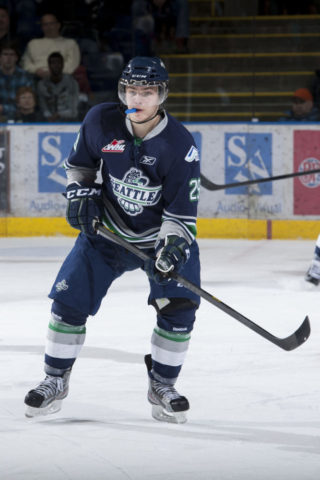
The Johnstown Tomahawks may have not put much thought into their brand in 2012 when the former Alaska Avalanche of the North American Hockey League was purchased. They were relocated to Johnstown and were renamed the Tomahawks. In fact, the apparent lack of concern could be construed as a total lack of intent (to be racist or otherwise) and certainly a Tomahawk is not a group of people, but a utensil.
According to the team’s website, “The new team brought high-intensity, hard-hitting, and affordable Junior A hockey as the city of Johnstown once again had a team to call its own.”
The organization received the NAHL’s Organization of the Year Award for the 2012-13 season. The team associates itself with many local charities, of which all people benefit.
The Johnstown Tomahawk Foundation has created local community programs and partnerships that target “those who most need support,” in their local community.
Moving the Goalposts of Racism
For better or for worse, the definition of racism has changed somewhere between the baby boomer and millennial generations.
Although the official definition of racism has not changed, what it means culturally has. Oxford tells us that the noun means: “prejudice, discrimination, or antagonism directed against a person or people on the basis of their membership of a particular racial or ethnic group, typically one that is a minority or marginalized.”
Merriam-Webster is a little more liberal with their definition: “a belief that race is the primary determinant of human traits and capacities and that racial differences produce an inherent superiority of a particular race.”
Racism previously manifested in a way that was considered hateful and violent. Currently, any level of benefit in society by one ethnic group over another, especially towards the historically disenfranchised, is considered intolerable. And it should not be tolerated. No intelligent, thinking person would argue this point.
However, symbolism and iconography is artistic expression and cannot be construed without revealing intent. There needs to be level-headed discourse to reflect both sides of the perspective on whether the intent is racist or not.
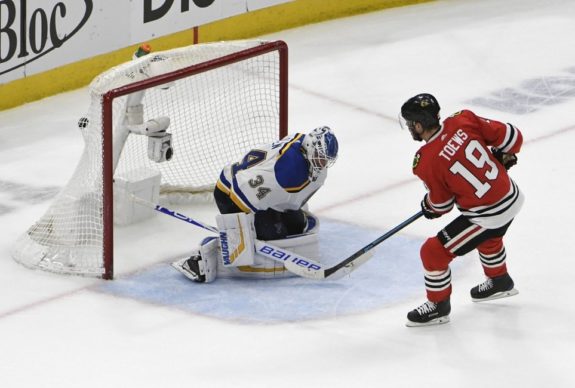
The Redskins brand is a relic of a bygone racist era and finally is about to be changed. The fact that the Redskins ownership did not listen to anyone for several decades, and not until billions of dollars were threatened, tells us all that we need to know about their intent.
The Blackhawks brand may harken back to a relic of a sociological era but their intent then and now was and is not racist, but rather to honour with distinction by connecting an indigenous hero to people who would otherwise have no clue who he was. Through the Chicago NHL team brand, Black Hawk lives.
